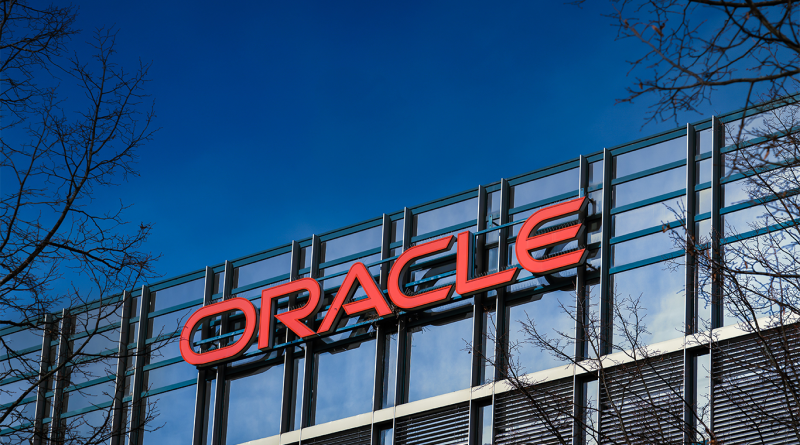Oracle’s New AI tools Revolutionize Global Supply Chain Efficiency
With global trade networks becoming increasingly complex and susceptible to disruptions, companies are seeking smarter solutions to optimize logistics, reduce costs, and improve sustainability. Oracle has stepped up to this challenge, introducing advanced AI capabilities within its Fusion Cloud Supply Chain & Manufacturing (SCM) suite.
Oracle’s new tools focus on transportation management, global trade compliance, and order processing. By integrating AI-driven analytics and automation, the company addresses common pain points in supply chain operations—such as shipment delays, high transportation costs, and cumbersome trade processes—while promoting sustainability through emissions reduction.
AI-powered logistics: Optimizing transportation and shipment management
A key feature of Oracle’s update is enhancing transportation management through AI. Supply chains often face unpredictable delays, inefficient routing, and rising transportation costs. Oracle’s AI-powered tools are designed to address these challenges.
AI-powered order route predictions help transportation managers identify cost-effective, efficient shipping routes. By analyzing vast datasets, the system predicts arrival times, helping companies avoid congested ports and customs delays. This reduces shipping costs and enhances delivery reliability—a critical factor in today’s demand-driven markets.
AI-powered transit time predictions improve shipment planning. The system identifies at-risk shipments and provides real-time updates on expected arrivals, allowing businesses to manage delays proactively and adjust schedules. This reduces the financial impact of late deliveries and enhances supply chain agility.
The transportation emissions calculator is another notable innovation. As sustainability becomes a priority, this tool helps transportation managers identify environmentally friendly shipping options. By calculating emissions during planning, companies can choose routes that minimize their carbon footprint, aligning logistics strategies with broader sustainability goals.
Enhancing trade operations with AI-driven global trade management
Navigating global trade regulations and managing cross-border logistics can be time-consuming and costly. Oracle’s AI-powered tools streamline these processes, offering businesses efficient ways to handle compliance, tariffs, and trade incentives.
Automated trade incentive program processing tracks goods and duties from import to export, helping logistics managers maximize duty drawback programs, which refund certain import duties when goods are exported. This automation reduces manual effort and mitigates the financial burden of tariffs, making global trade more cost-effective.
AI-powered reporting for customs compliance simplifies generating documentation for trade incentive claims. Oracle’s AI tools compile accurate data quickly for customs authorities, speeding up the filing process and reducing costly errors. This saves time and ensures compliance with international regulations.
Transforming order management with Oracle’s AI tools
Order management is another area where Oracle’s AI capabilities drive efficiency. Handling returns and managing promotions can slow down operations and impact customer satisfaction. Oracle’s AI tools address these challenges with smart automation and data-driven insights.
The AI-generated returns summary provides order management specialists with comprehensive, real-time updates on returned orders. By consolidating item details, user comments, and return statuses, the tool enables faster decision-making and more efficient processing. This improves operational efficiency and enhances the customer experience by reducing return processing times.
The AI-generated pricing promotions summary helps pricing administrators manage discounts and special offers more effectively. By summarizing promotional lines, benefits, and conditions, the tool ensures promotional details are communicated consistently across teams and platforms. This reduces confusion, improves accuracy, and helps businesses capitalize on promotional opportunities.
Industry trends and the future of AI in supply chain management
The integration of AI into supply chain management reflects a broader trend reshaping business operations. As global supply chains become more complex and vulnerable to disruptions, companies increasingly turn to AI to enhance resilience, efficiency, and adaptability.
Broader adoption of AI-driven decision-making in logistics is expected to accelerate. By 2025, AI could automate up to 80% of routine supply chain decisions, from procurement and inventory management to transportation planning. This reduces human error and frees supply chain professionals to focus on strategic initiatives, such as risk mitigation and sustainability planning.
The role of AI in creating resilient and adaptive supply chains is also gaining attention. AI’s ability to process vast datasets, identify patterns, and make rapid decisions equips organizations with the agility needed to navigate unforeseen challenges. During supply chain disruptions, AI can quickly re-optimize routes, adjust inventory levels, and predict bottlenecks, ensuring minimal operational impact.
Predictions for future advancements in Oracle’s supply chain solutions suggest deeper integration of AI and machine learning into logistics management. As AI evolves, expect more sophisticated predictive analytics, real-time optimization capabilities, and integration across supply chain functions.
Sources:
To keep up-to-date with our latest supply chain news, subscribe to our newsletter today.
